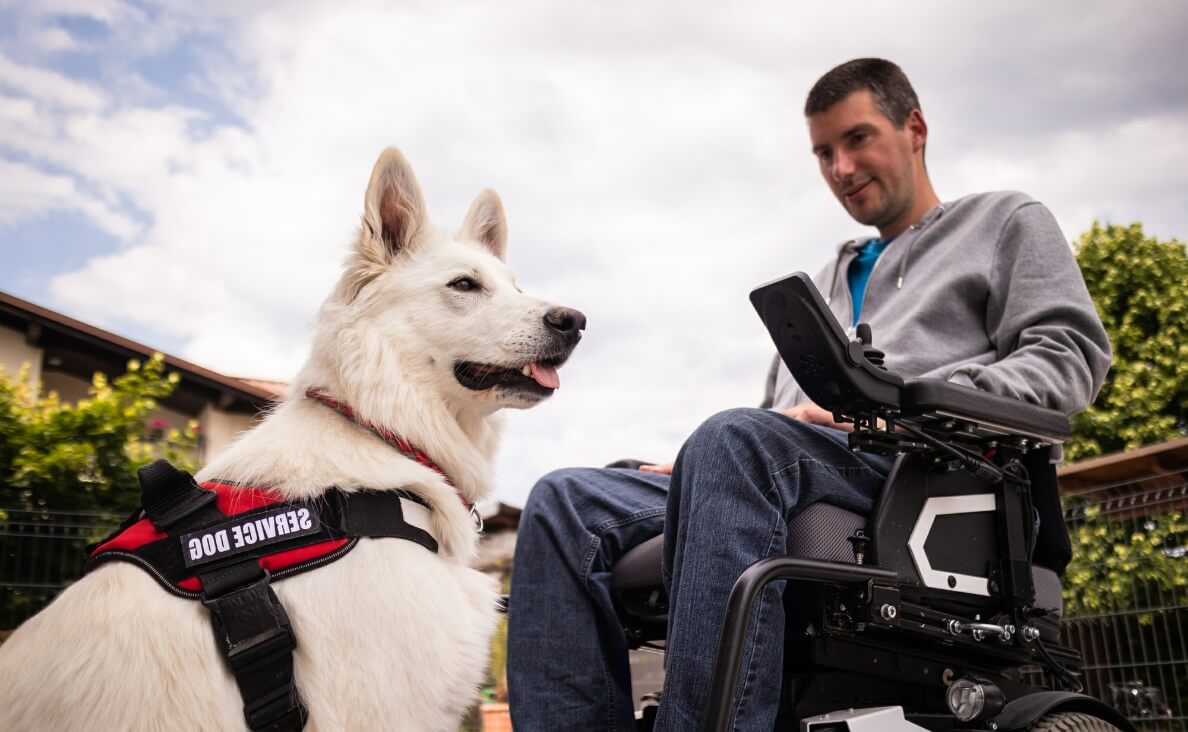
Post-Traumatic Stress Disorder (PTSD) is a complex mental health condition that can have debilitating effects on individuals who have experienced trauma. Fortunately, various therapeutic approaches can aid in managing PTSD symptoms, and one of the most remarkable among them involves the companionship of service dogs. These specially trained canines not only offer unconditional love and support but also play a pivotal role in reducing PTSD symptoms. In this blog post, we will delve into the profound impact of service dogs on individuals with PTSD, exploring the science behind this bond and the ways in which these remarkable animals contribute to the healing process.
Understanding PTSD and Its Symptoms
Before we explore the role of service dogs in alleviating PTSD symptoms, it’s important to understand the nature of PTSD itself. PTSD is a mental health condition that can develop after a person experiences a traumatic event. Such events may include combat exposure, physical or sexual assault, accidents, natural disasters, or any other life-threatening incidents. Common symptoms of PTSD include intrusive thoughts, nightmares, flashbacks, hypervigilance, avoidance of reminders, mood disturbances, and heightened anxiety.
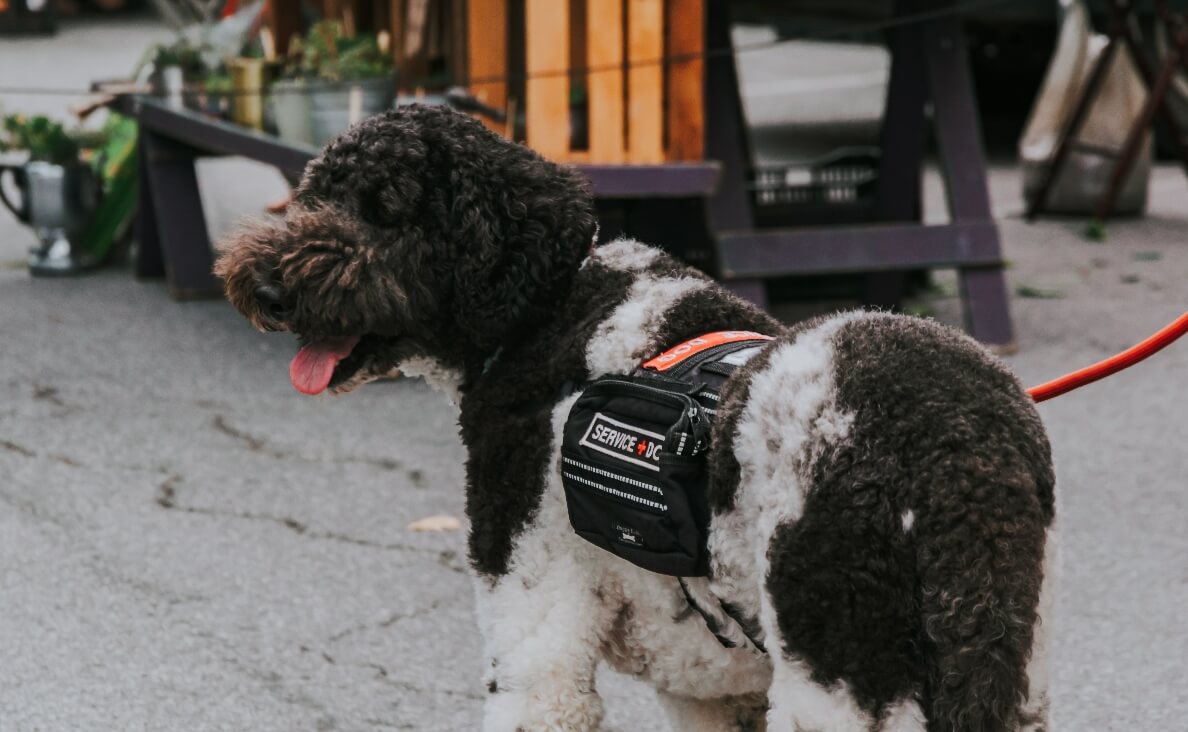
The Power of the Canine-Human Bond
The bond between humans and dogs has been recognized for centuries, and science has started to uncover the deep physiological and psychological effects of this relationship. The act of interacting with a dog releases oxytocin, often referred to as the “bonding hormone,” which promotes feelings of trust and connection. This release of oxytocin not only benefits individuals with general anxiety and depression but also holds promise for those with PTSD.
Service Dogs and PTSD: A Healing Partnership
Service dogs are specially trained to assist individuals with various disabilities, including those with PTSD. These remarkable animals undergo extensive training to provide support tailored to the specific needs of their handlers. When it comes to PTSD, service dogs offer a multifaceted approach to symptom management.
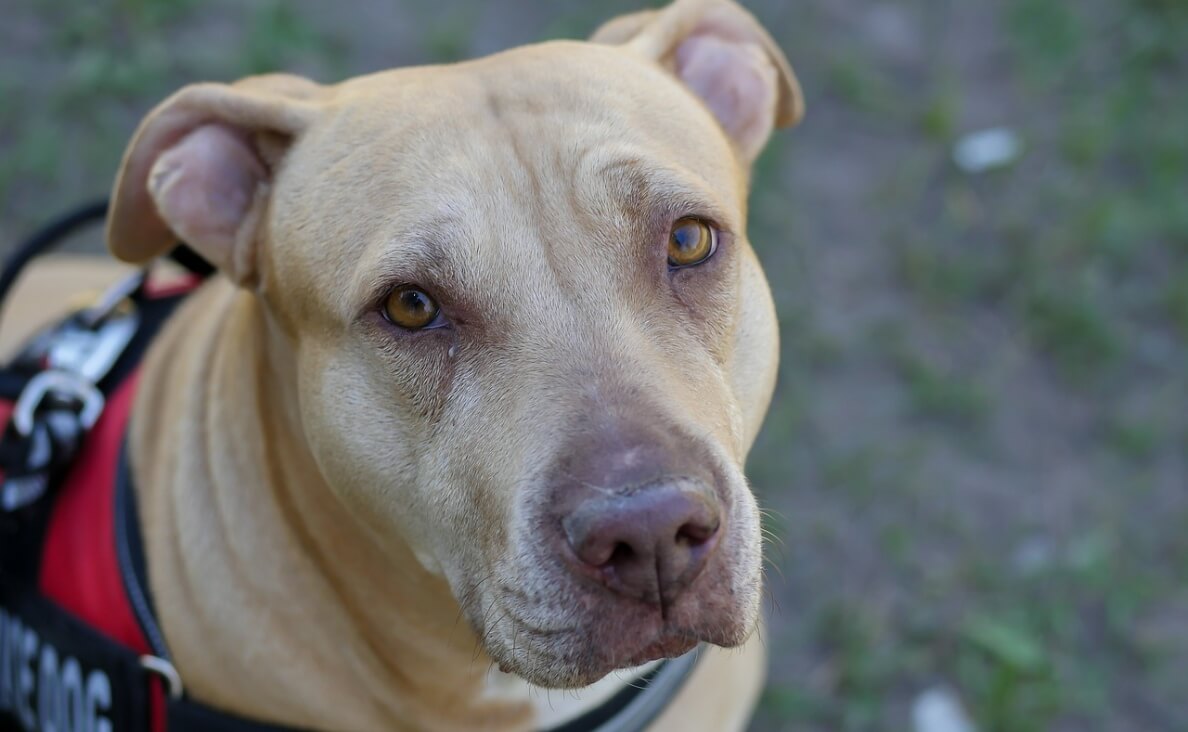
1. Emotional Support
One of the hallmark symptoms of PTSD is the feeling of isolation and emotional detachment. Service dogs provide constant companionship, offering unconditional love and support. The presence of a service dog can help individuals feel less alone and provide a source of comfort during times of distress.
Read more: 10 Ways You and Your Dog Can Relieve Stress Together
2. Anxiety and Panic Attack Detection
Many service dogs are trained to detect signs of anxiety and panic attacks in their handlers. They can sense changes in heart rate, breathing patterns, and other physiological indicators, allowing them to intervene before a full-blown episode occurs. This preemptive action can significantly reduce the severity of symptoms and improve the individual’s overall well-being.

3. Grounding and Dissociation Prevention
Dissociation, a common symptom of PTSD, involves feeling disconnected from one’s surroundings or even one’s own body. Service dogs can help prevent dissociation by grounding their handlers through tactile sensations, gentle nudges, and other physical interactions.
4. Nightmare and Flashback Interruption
Nightmares and flashbacks are distressing symptoms that can disrupt sleep and overall quality of life for individuals with PTSD. Trained service dogs can be taught to wake their handlers from nightmares, providing a tangible sense of safety and security.
5. Social Reintegration
Many individuals with PTSD find it challenging to reintegrate into social situations. Service dogs act as “social lubricants,” easing interactions by providing a non-threatening and comforting presence. This can lead to increased socialization and improved mental well-being.
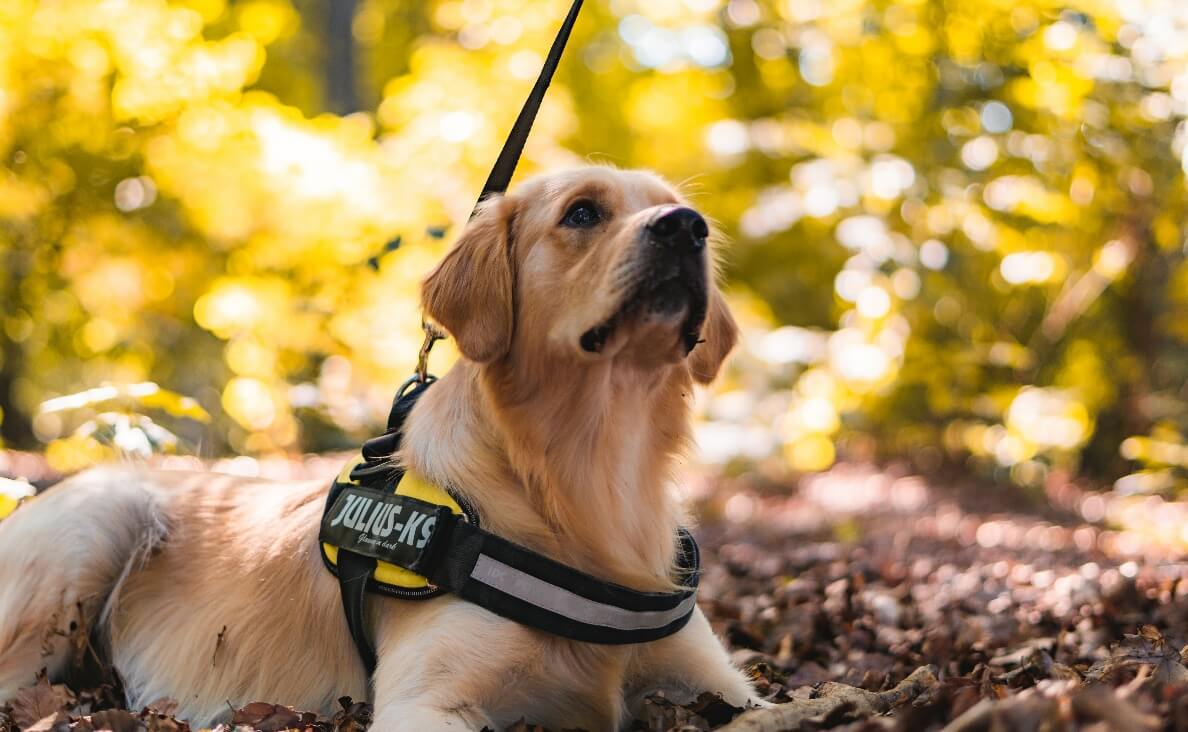
Scientific Evidence Supporting the Effectiveness of Service Dogs
While the anecdotal evidence of the positive impact of service dogs on individuals with PTSD is overwhelming, scientific studies are also beginning to substantiate these claims. Research published in the Journal of Consulting and Clinical Psychology found that veterans with PTSD who received a service dog experienced a significant reduction in symptoms, including nightmares and suicidal thoughts.
Furthermore, a study published in the Journal of Traumatic Stress demonstrated that the presence of a service dog led to a decrease in cortisol levels, which are often elevated in individuals with PTSD. This reduction in cortisol suggests a physiological calming effect brought about by the presence of the service dog.
Fostering Independence and Empowerment
Beyond the immediate symptom reduction, service dogs empower individuals with PTSD to regain a sense of control over their lives. By providing practical assistance, such as retrieving medication, creating personal space in crowded areas, or even providing physical support during moments of anxiety, service dogs help their handlers navigate the challenges of daily life with greater confidence.
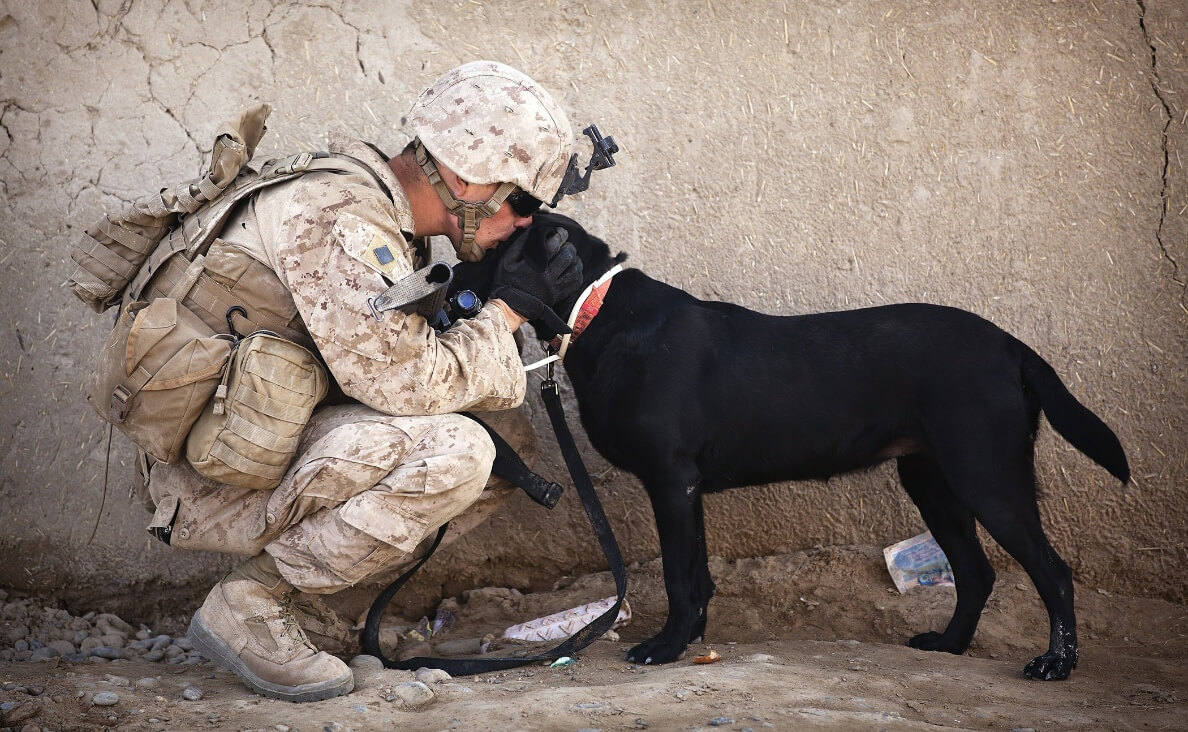
The Importance of Proper Training and Care
It’s essential to note that the effectiveness of service dogs in reducing PTSD symptoms hinges on proper training and care. These dogs undergo rigorous training that goes beyond basic obedience. They learn to respond to specific cues, recognize changes in their handler’s behavior, and provide targeted support. Additionally, their well-being is paramount. Regular exercise, proper nutrition, and regular veterinary care are crucial to ensuring these dogs can fulfill their roles effectively.
Service dogs are more than just trained companions; they are sources of unwavering support, understanding, and healing for individuals with PTSD. Their ability to detect and respond to emotional and physiological changes, interrupt distressing symptoms, and provide a constant presence of comfort and security can have a profound impact on the lives of those struggling with the aftermath of trauma. As the scientific community continues to explore the intricate relationship between humans and dogs, the role of service dogs in mitigating the effects of PTSD stands as a testament to the incredible potential of this unique bond.
Are you, or someone you know, looking for a service dog or warrior support dog? Consider reaching out to New Life K9s Service Dogs.

 Have a Heart for Chained Dogs Week
Have a Heart for Chained Dogs Week 27 Facts About Dogs You Probably Don’t Know
27 Facts About Dogs You Probably Don’t Know Do Dogs Like Music?
Do Dogs Like Music? What Colors Can Dogs See? A Look into Canine Color Vision
What Colors Can Dogs See? A Look into Canine Color Vision 10 Tips to Stop Dog Aggression Towards Cats
10 Tips to Stop Dog Aggression Towards Cats






I love that service dogs exist. They can help a man in a lot of ways and I am so grateful for that. Sometimes we need someone else than a human because people can not always, constantly be around you while a service dog can. I adore these dogs because they are so kind and so cute and well-bred.
It is also important to raise them right and adapt to them and let them adapt to you. After that they will be able to fully help you, support you and help to heal. This is so sweet, I love dogs just in general.. Such wonderful creatures!
Dogs certainly are special – thank you for your wonderful comment! Hope you visit us again soon!